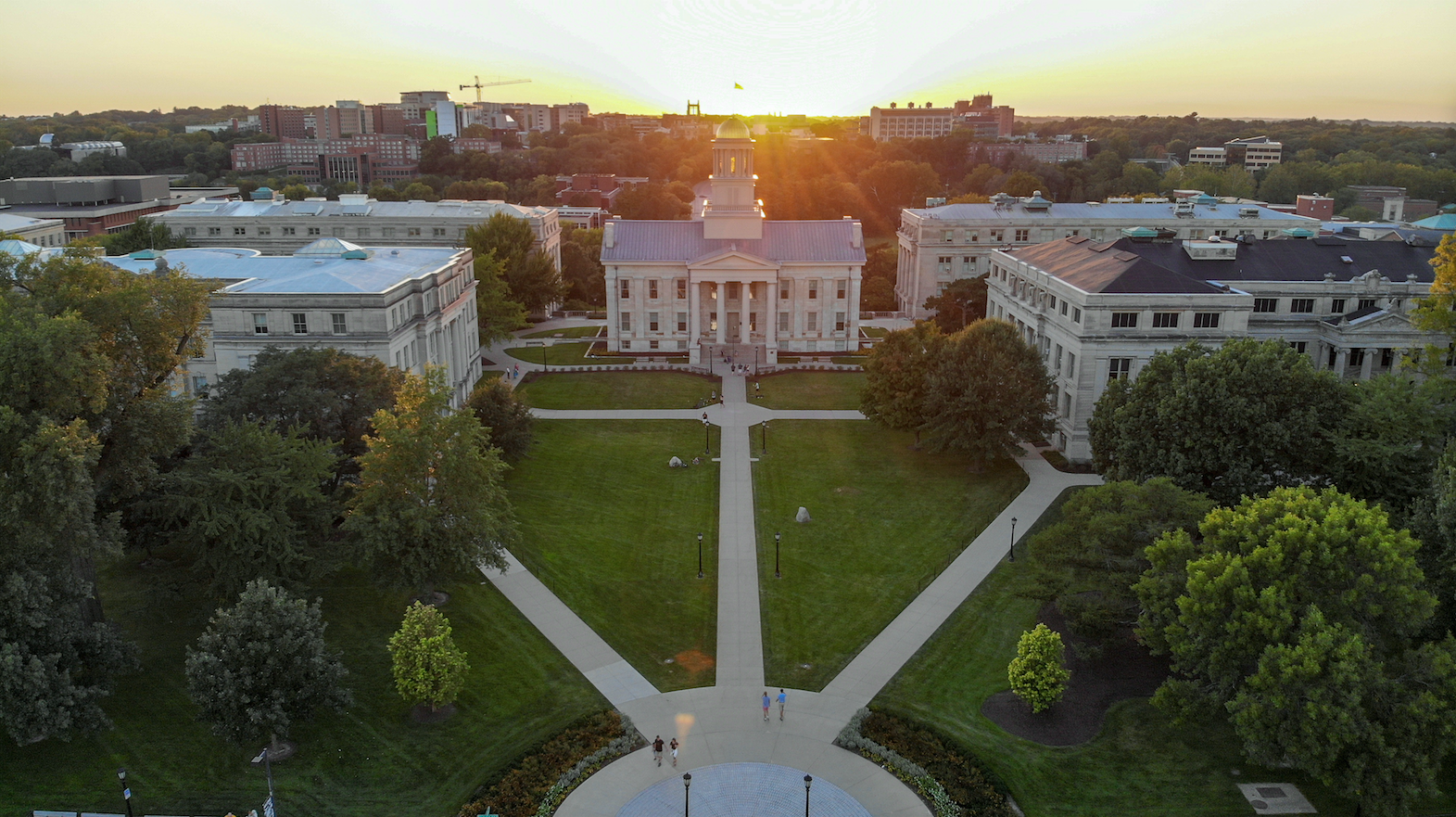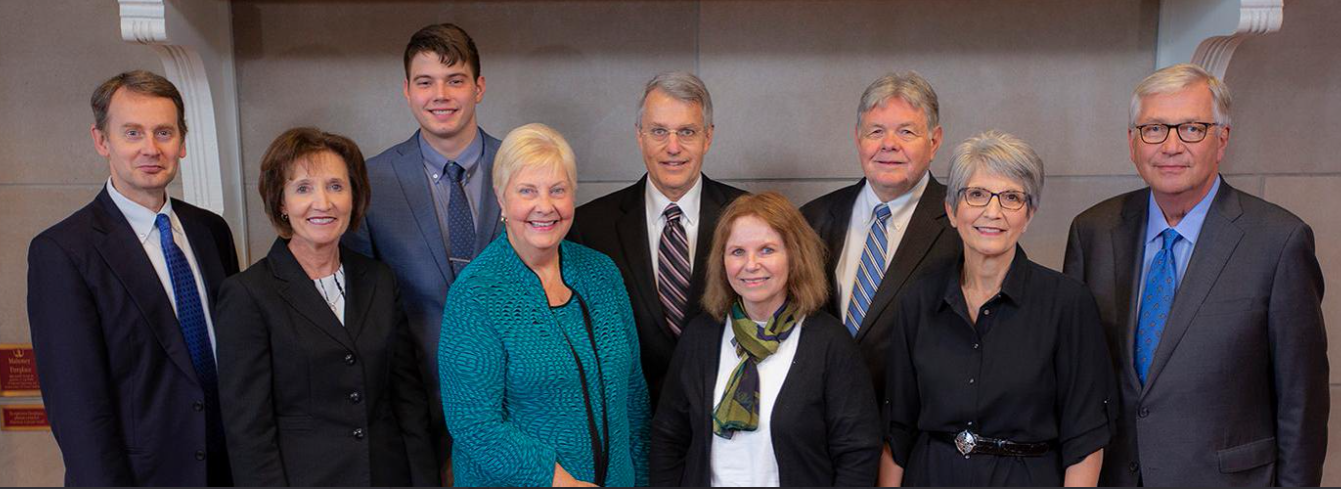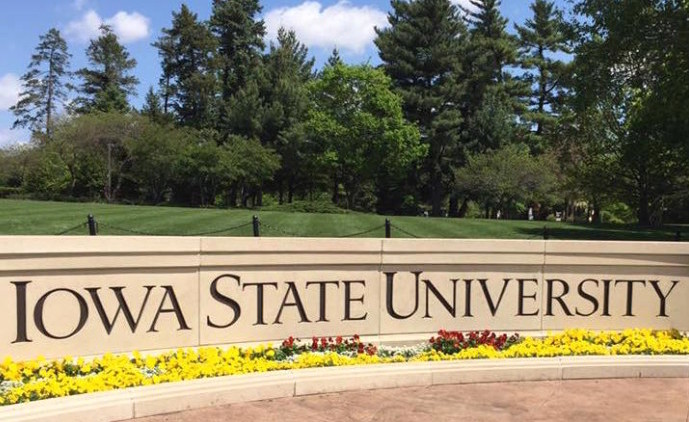Congratulations to all the Bleeding Heartland readers who just finished a year of academic work and especially to those who completed their undergraduate or graduate degrees this month. Good luck with whatever you have planned for the summer and beyond, and remember, many people switch gears several times during their careers. What I spend my time on now is different from the work I did during and immediately after grad school and far from any future I imagined as an undergraduate.
Pat Rynard recently interviewed eight student journalists about their experiences covering the Iowa caucuses. Well done to all, and good luck to the four who are graduating: Brent Griffiths, Madeline Meyer, Rebecca Morin, and Lissandra Villa.
Congratulations are also in order for everyone involved with the Iowa State Daily, which just won the “Best All-Around Daily Student Newspaper” award from the Society of Professional Journalists.
University of Iowa President Bruce Harreld struck an odd note in his graduation message to faculty, staff, and students: “Although a university attempts to create a space for fruitful study for its faculty and students, it can’t escape reality. We have gone through a lot at the University of Iowa, particularly in the last year. And yet here we are, about to uphold a time-honored tradition.”
Much of the turmoil and discontent at the University of Iowa this past year stemmed from Harreld’s hiring, against the wishes of most campus stakeholders. Unlike most of the people affected by his arrival, Harreld has been extremely well-compensated, receiving a substantially higher salary than the woman he replaced. He also presided over a generous contract extension for Athletics Director Gary Barta, despite troubling trends for women under Barta’s leadership and questionable decisions that have spawned multiple lawsuits and investigations of alleged gender discrimination. Meanwhile, the University of Iowa decided against complying with Johnson County’s latest minimum wage hike, a policy Harreld declined to explain in a public forum.
Seeing Harreld allude to what “we have gone through” at the University of Iowa (as if he were some passive bystander) reminded me of the president’s strange answer to the Daily Iowan’s recent questions about hate speech. As the Ditchwalk blog covered in more detail here, Harreld doesn’t seem to appreciate the difference between being insulted in public and being a target of hate speech.
Last week, some activists encouraged University of Iowa graduates not to shake Harreld’s hand while receiving their diplomas during the May 13 commencement ceremony. I understand the sentiment, but I would have encouraged students to deliver some concise verbal message while crossing the stage instead. Refusing a handshake makes a visible statement but also risks generating sympathy for Harreld.
Speaking of university leaders in the news, Iowa State University President Steven Leath’s approach to building relationships with lawmakers drew scrutiny recently. As Ryan Foley reported for the Associated Press on May 6, Leath provided tickets to sold-out ISU men’s basketball games to ten influential state legislators this year. Although the lawmakers paid face value for the tickets, the practice seems inconsistent with the spirit of Iowa’s gift law, since the courtside seats are normally available only to people who donate thousands of dollars to the university. Excerpts from Foley’s report and a recent Des Moines Register editorial on the subject are after the jump.
Simpson College political science Professor Kedron Bardwell recently flagged a disturbing interview Sam Clovis gave to Inside Higher Education. Clovis is on leave from his tenured position at Morningside College in Sioux City while he serves as a policy director for Donald Trump’s presidential campaign. Absurdly, Clovis suggested that even though “The liberal arts education is the absolute foundation to success in life,” perhaps student loans should not be available for those planning to major in the humanities. Presidential candidates bashing non-STEM education, especially philosophy majors, has long been a pet peeve for Bardwell. Many Simpson graduates who majored in philosophy or political science have gone on to successful careers. Research has shown that “philosophy majors consistently outperform nearly all other majors on graduate entrance exams such as the GRE and LSAT.”
This is an open thread: all topics welcome.
Continue Reading...









